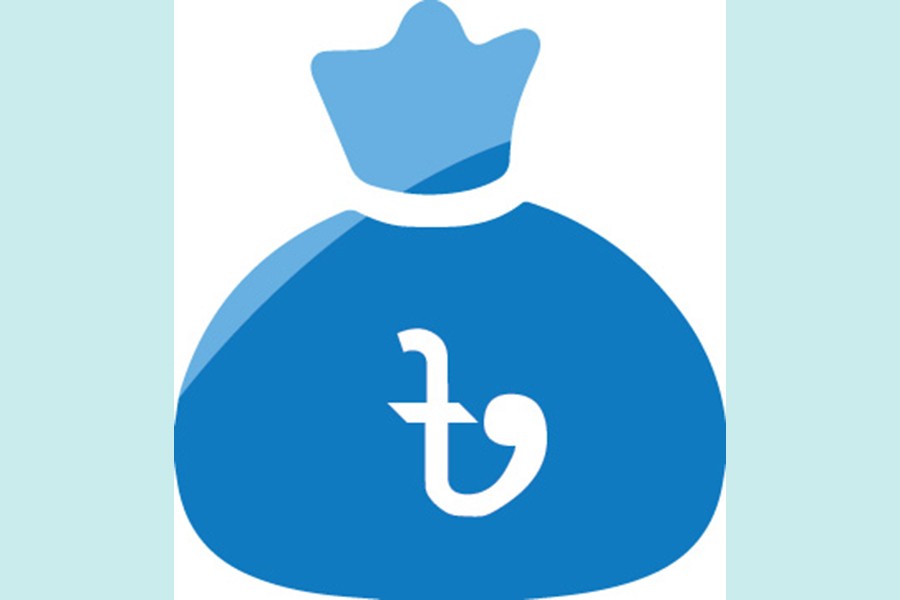Amid an eight-year high CPI in May and record devaluation of the currency, both policy hawks and doves at the Bangladesh Bank have their sight on the four key challenges in the upcoming fiscal year- addressing the soaring inflation, reining in the rising price of the US dollar, fattening up the depleted reserves and striking a balance between credit flow and inflation to keep the economy moving, reports bdnews24.com.
These key four issues will be at the forefront of the upcoming monetary policy which will be announced soon after a high-level meeting on Monday with the bank's governor Fazle Kabir in the chair in Dhaka.
According to traditions, monetary policies for the first half of the fiscal year were usually announced at the end of July after considering propositions and suggestions from stakeholders. Last year, the monetary policy was made public on Jul 29.
This year, however, the announcement date was brought forward since it will essentially be the last monetary policy overseen by Kabir, whose tenure as the top central banker is coming to an end on July 3.
Kabir broke away from a few more traditions in his previous two announcements of policies as well. Instead of two monetary policies for each half of the fiscal year, he set a single policy for the last two consecutive fiscal years as the pandemic grinded the Bangladesh economy to a halt. Citing the same reasons, he refused to organise press conferences to make the official announcement of unveiling the policies either.
As the economy has slowly slid into full action, this year the challenges facing the central bank are paramount with the soaring inflation rate and a massive depletion of the reserves.
The government had projected a 5.3 per cent inflation rate for the outgoing fiscal year. In May alone, the rate jumped up to 7.42 per cent.
For the incoming fiscal year, the government has set a gross domestic product, or GDP, growth of 7.5 per cent. The rate was 7.25 per cent in the outgoing financial year.
Chief Economist at the Bangladesh Bank Dr Habibur Rahman said the teams working on setting the policy have been treading very cautiously as the Bangladesh economy is in a delicate state at the moment.
“This time, economic challenges are paramount, and they are somewhat correlated. In our simulations, it turns out if we want to calibrate some indexes, somehow we end up impacting something else entirely,” he said.
“On one hand, we need to keep the supply of the currency in check to address inflation, while on the other hand, we’ve to keep an eye on import and export situation to set the foreign exchange rate.”
“We need to somehow come up with ideas to revert the reserves [forex reserve] to its previous state; otherwise the crisis of foreign exchange will deepen,” added an ever-cautious Habibur.
The lead economist of the central bank, however, strongly believes these issues are manageable.
“Although this time the challenges are a bit more complex than we're in previous years, I’m hopeful that we’ll be able to figure out solutions,” he said.
STAKEHOLDERS WARY OF THE SITUATION
Senior officials at the Bangladesh Bank told bdnews24.com that recommendations have already been sought from former governors, economists and stakeholders in formulating the policy.
The central bank also posted a notice on its website, seeking suggestions from the citizens and organisations via email. Jun 16 was the last date of sending propositions.
Former Bangladesh Bank governor Dr Salehuddin Ahmed emphasised adopting a balanced approach to formulate the policy for the upcoming fiscal.
In terms of the exchange rate, he said instead of taking a definitive stance, the smarter way should be to adjust it slowly.
“We are not at liberty to take either an expansionary or a contractionary approach [while formulating monetary policy]. I believe by following the revenue policies structured in the proposed national budget, the central bank must come up with a policy that addresses the burning inflation rate issue,” he said.
“Special strategies need to be set in motion. The central bank especially needs to pay specific attention so that credit flow for the private sector remains smooth. The monetary policy must ensure productive sectors, especially small and medium enterprises, reap the benefit of the credit flow.”
The former governor said small and medium industries tend to generate more jobs compared to larger industries but receive lesser aid than the bigger ones.
“Time for a change so that they [SMEs] keep creating more jobs and strengthen the local market,” he said.
Dr Zaid Bakht, the chairperson of the state-owned Agrani Bank, believes maintaining equilibrium in different monetary indexes is the key to formulating a “balanced monetary policy”.
He agreed with his senior colleague Salehuddin that the Bangladesh Bank must ensure the credit flow for the private sector does not get bottlenecked.
“We can’t put an austerity measure in place while formulating the monetary policy. We also must pay attention to remittance inflow to address the foreign exchange reserves issue,” he said.
Calling the monetary policy for the outgoing fiscal “expansionary and accommodative”, Bangladesh Bank kept provisions in place so that the government can borrow Tk 764.52 billion through treasury bills and auctioning bonds from the banking system in the entire fiscal year to finance deficits. In the same policy, private sector debt saw a 14.8 per cent year-on-year growth.


